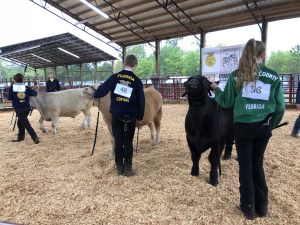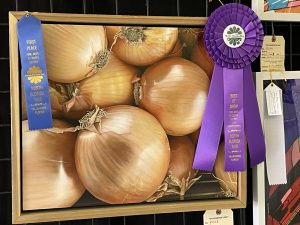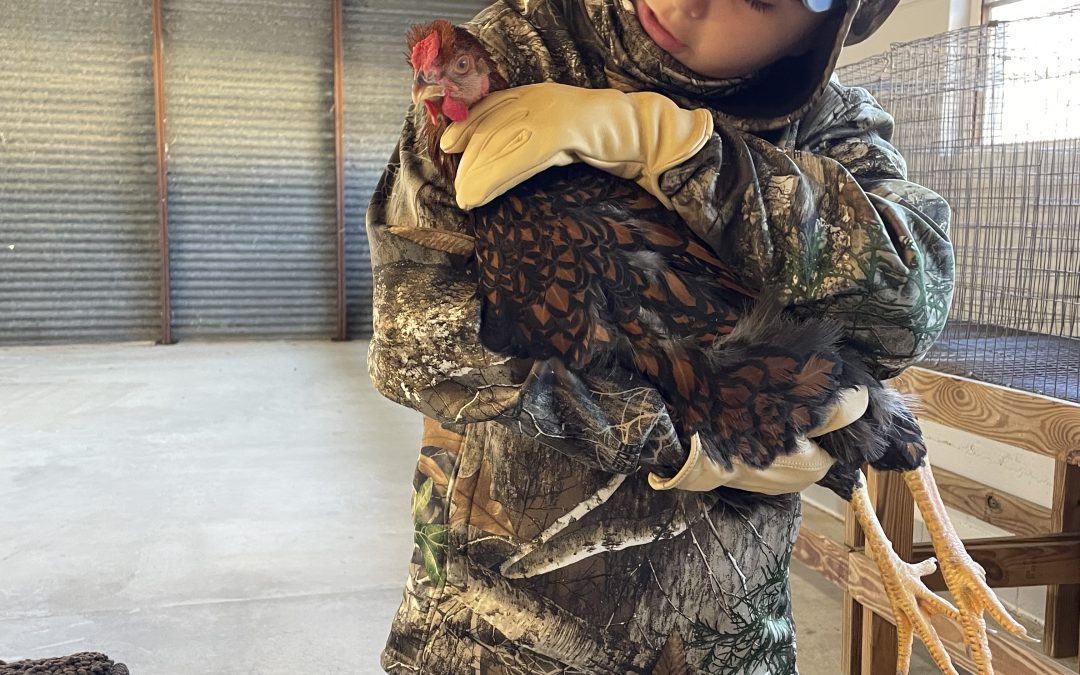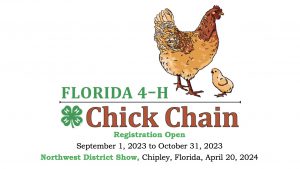Blue Ribbon Scrapbooking and Poetry
 Do you love to get creative and capture special memories? Show off your talents in the scrapbook (Class 14) or poetry (class 15) at the North Florida Fair!
Do you love to get creative and capture special memories? Show off your talents in the scrapbook (Class 14) or poetry (class 15) at the North Florida Fair!
How to Enter a Scrapbook for Class 14: Scrapbooking
If you enjoy taking pictures and scrapbooking, you can submit a scrapbook page about a 4-H project or activity to the fair. Follow these guidelines to make sure your page meets all the requirements and stands out in craftsmanship, creativity, journaling, and originality.
Size Requirements:
Your scrapbook page must be between 8” x 10” and 12” x 12”. Pages outside these sizes won’t be accepted, so double-check your measurements before submitting.
Theme:
Choose a theme related to a 4-H project or activity. The page should show a project you worked on or an event you attended, like an agricultural project, a craft workshop, community service, or camp.
Captions and Journaling:
Each photo needs a caption that explains what’s in the picture and why it’s important. Include some journaling to tell the story behind the photos. This helps the judges understand your page better, so share details about the people, the activity, and why it’s special.
Focal Point:
Every page should have a standout element, like a main photo or a special decoration. This is called the focal point, and it should grab the viewer’s attention right away.
Judging Criteria:
Your page will be judged on:
- Craftsmanship: Keep your page neat, clean, and well-organized.
- Creativity: Use creative layouts and decorations.
- Journaling: Make sure your writing adds a personal touch and tells the story behind the photos.
- Originality: Judges are looking for something unique and personal.
Tips for Success:
- Plan Your Layout: Arrange everything before gluing anything down.
- Use Good Photos: Choose clear, high-quality photos.
- Stick to Your Theme: Make sure every part of your page connects to your 4-H project or activity.
- Tell a Story: Share more than just facts—describe your feelings and experiences.
Make sure your scrapbook page meets the size and theme rules before submitting. Good luck with your 4-H Class 14 entry!
The link to the rules for category 14 can be found here: https://northfloridafair.com/4-h-club-department-210/
Poetry
How to Submit a Poem for Class 15:
Are you ready to submit your rhyme,
And show your poem’s worth the time?
Here are the rules you need to know,
To help you get your creativity to flow!
Submission Guidelines
Typed and tidy on one side, please
Your verse should be typed with ease.
Font and size: how to proceed
Make your font easy to read.
Times New Roman or Courier bold,
In 12-point size, your yarn is told.
Original work – all yours to show
The poem must be yours—you know!
No copying words from anywhere,
All original work is yours to share.
Don’t forget to add the date
Mark the day—don’t be late!
Use a piece of paper that’s 8½ x 11 sized
Protective it with a plastic sleeve; it is prized.
Give it your all, make it your very best,
Just one per rhymester, no more, no less!
Judging Criteria: The poetry entries will be evaluated based on the following four criteria: use of language, mood, originality, and content.
- Effective Use of Language:
- How well does the poem make use of language? Are the words chosen carefully, and do they create a vivid, engaging picture in the reader’s mind?
- Focus on strong, descriptive words that make an impact on the reader.
- Mood Intensity:
- Does the poem effectively create a mood or feeling? Whether it’s joy, sorrow, excitement, or nostalgia, your poem should evoke a strong emotional response from the reader.
- The way you build intensity can be through rhythm, pacing, or word choice.
- Originality in Approach and Theme/Creativity:
- Judges are looking for poems that take a unique approach to a theme. Think outside the box and avoid using clichés or overly familiar topics.
- Creativity is key here—use your own voice and perspective to express something in a fresh, interesting way.
- Meaningful Content:
- Is the poem meaningful? Does it convey a deep or important message? Whether you’re telling a story, sharing a personal experience, or commenting on a broader issue, make sure your poem has substance.
- The content should reflect thoughtful consideration and an intention to communicate something significant.
Tips for Success
- Edit your poem: after you’ve written your poem, take time to review and edit it. Look for areas where you can improve the flow, tighten up language, or add stronger imagery.
- Use imagery and metaphor: strong poems often include vivid imagery or metaphors that help paint a picture or convey emotions in a unique way.
- Practice reading aloud: poetry often has a rhythm or sound to it. Reading your poem aloud can help you catch any awkward phrasing or areas where the flow could be improved.
- Be personal and authentic: the most memorable poems are those that feel real and come from a personal place. Don’t be afraid to write about topics that are meaningful to you.
Final Submission
Once it’s ready and meets the guide,
Present your work with 4-H pride!
Put your poem in a sleeve so clear,
Your expression and flair will soon appear!
The link to the rules for category 15 can be found here: https://northfloridafair.com/4-h-club-department-210/


 Competing in Contests– Most fairs offer subject matter specific contests where youth can demonstrate their project knowledge. In the Florida Panhandle, there are contests for Horticulture Judging, Wildlife Ecology, Sewing, Consumer Choices, Science, Technology, Engineering, and Math (STEM), and Agriculture. During these contests, youth use what they have learned to problem solve, communicate, and work as a team. Next time you hear the fair is in town, enjoy the corn dogs and cotton candy, but remember the exhibit hall. You may run into a 4-H club member caring for their animal or watering their plants in the horticulture exhibit.
Competing in Contests– Most fairs offer subject matter specific contests where youth can demonstrate their project knowledge. In the Florida Panhandle, there are contests for Horticulture Judging, Wildlife Ecology, Sewing, Consumer Choices, Science, Technology, Engineering, and Math (STEM), and Agriculture. During these contests, youth use what they have learned to problem solve, communicate, and work as a team. Next time you hear the fair is in town, enjoy the corn dogs and cotton candy, but remember the exhibit hall. You may run into a 4-H club member caring for their animal or watering their plants in the horticulture exhibit.

